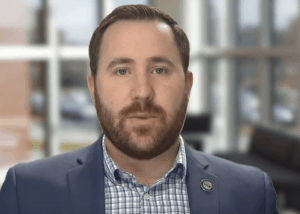This week’s International Association of Interviewers interview and interrogation training tip provided by Wicklander-Zulawski, has Dave Thompson, CFI, vice president of operations for WZ, addressing the importance of asking for feedback after your interviews.
Often, experienced and confident interviewers (like many of those watching these tips) tend to ask for less feedback over time. The more interviews they have conducted, the less feedback they request. That’s a dangerous combination.
Sometimes what happens as we continue to do interviews is that when we see results and success, we think that we’ve nailed it, that we’ve got it right. What we don’t realize is that maybe there’s something we’re saying that we could say a little bit better. Maybe there’s something we’re saying that could cause liability for the company. Maybe we’ve unintentionally caused an innocent person to confess.
It’s important that no matter whether you’ve done one interview, five interviews, or five hundred interviews, you should still ask for feedback. At WZ, we still do the same thing.
At WZ, for example, we still do the same thing. After we conduct an interview or investigation, we sit together as a team and offer critiques and feedback on how the interview went. It’s a lot easier to look back in hindsight with a peer to figure out, “What could I have done better?” or maybe, “What did I do well that this peer could use in their next interview?”
Just because you’ve done something for a long time doesn’t necessarily make you an expert. What makes you an expert is being open and being challenged on what you’re doing—and always looking for ways to improve.
Your challenge: partner with your peers. Partner with your supervisors. Figure out how you can best get some feedback from your next interviews. See what it might take to make your interviews even better and make your task of getting the truth that much easier.
Every loss prevention investigator should continuously strive to enhance their investigative interviewing skills as part of an ongoing commitment to best-in-class interviewing performance. This includes holding ourselves to an elite standard of interview and interrogation training that is ethical, moral and legal while demanding excellence in the pursuit of the truth. The International Association of Interviewers (IAI) and Wicklander-Zulawski (WZ) provide interview and interrogation training programs and additional guidance to investigators when dealing with dishonest employees, employee theft, sexual harassment, policy violations, building rapport, pre-employment interviewing, lying, denials and obtaining a statement.
By focusing on the latest information and research from experts in the field as well as academia, legal and psychological resources, these video tips provide interview and interrogation training techniques that can enhance the skill sets of professionals with backgrounds in law enforcement, loss prevention, security, asset protection, human resources, auditors or anyone looking to obtain the truth.
Visit www.w-z.com or www.certifiedinterviewer.com for additional information.
